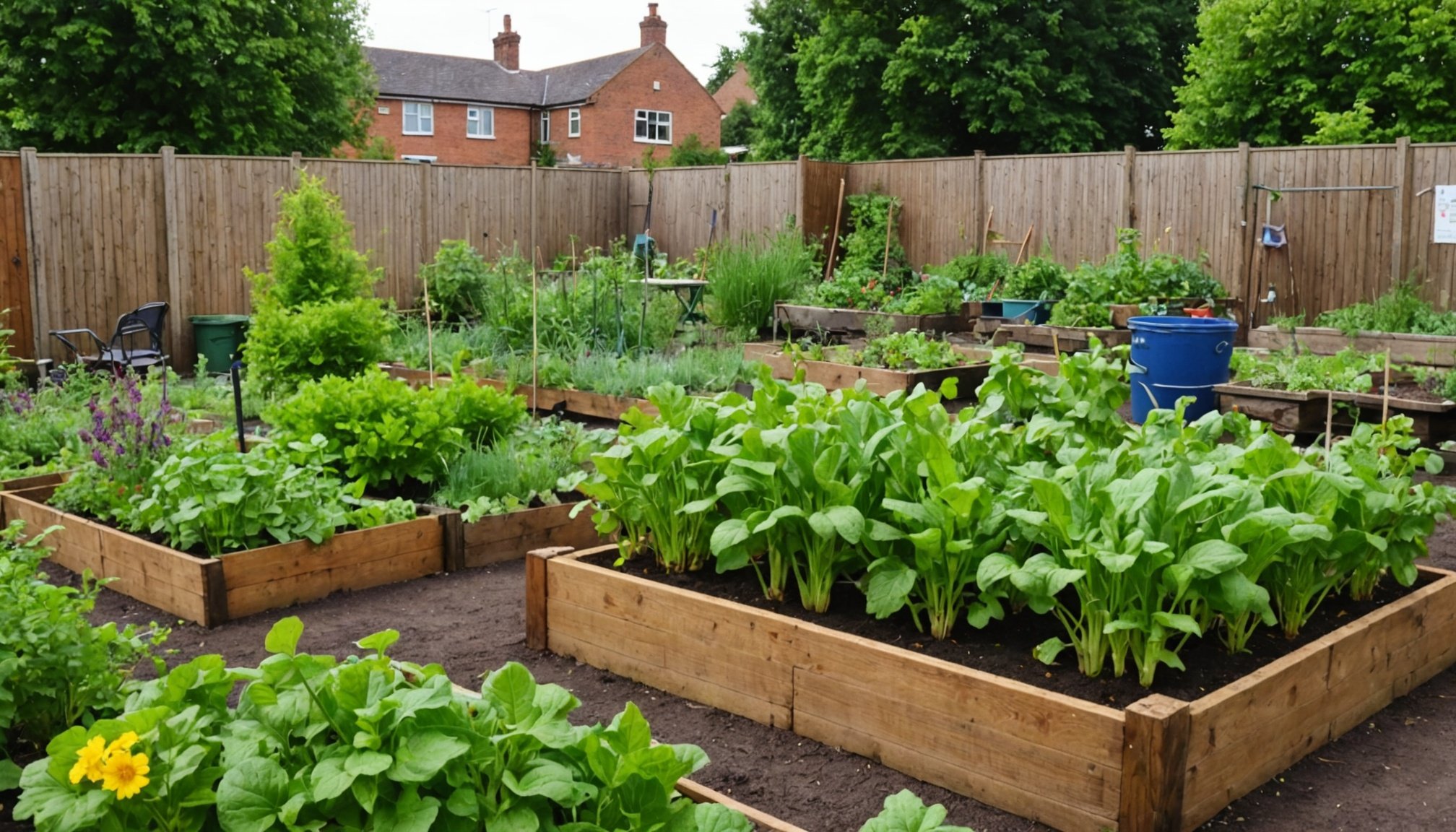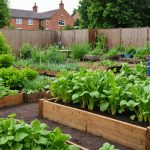Discovering the Mental Health Perks of Urban Community Gardens in the UK
The Power of Gardening on Mental Health
Gardening, often viewed as a simple hobby, has been revealed through numerous studies to have profound effects on mental health and wellbeing. In the UK, urban community gardens are becoming increasingly recognized for their role in promoting mental wellbeing, particularly in densely populated areas where access to green spaces can be limited.
Positive Effects on Mental Wellbeing
Research has consistently shown that gardening activities have a positive impact on various aspects of mental health. A systematic review and meta-analysis highlighted that gardening activities lead to improved mental wellbeing, reduced stress and anxiety, and enhanced quality of life.
Also to discover : Unlocking Relaxation: Evaluating Acupuncture”s Impact on Stress Relief Across the UK
For instance, the act of gardening can lower blood pressure, reduce mental fatigue, and promote better sleep quality. These benefits are particularly significant for individuals living in urban environments, where the hustle and bustle of city life can often lead to increased stress levels.
The Role of Green Spaces in Urban Settings
Green spaces, including community gardens, play a crucial role in urban settings by providing a natural oasis amidst the concrete jungle. These areas not only offer a place for physical activity but also serve as a sanctuary for mental relaxation.
Also read : Ultimate Guide to Top Cooling Down Techniques for UK Amateur Athletes: Maximize Recovery and Performance!
Socioeconomic Deprivation and Green Space
Studies have shown that the positive effects of green spaces on mental health are even more pronounced in areas of socioeconomic deprivation. An analysis found that increasing residential green space in deprived areas intensified the positive impact on mental health, suggesting that community gardens can be a powerful tool in addressing health disparities.
Community Gardening: A Hub for Social Interaction
Community gardens are more than just plots of land; they are vibrant social hubs that foster community interaction and a sense of belonging.
Building Community and Social Bonds
Incorporating community gardens into urban landscapes encourages social interaction among residents, their loved ones, and staff members. These gardens serve as communal spaces where people can come together, share experiences, and build relationships. For example, residents in care homes who participate in community gardening often find themselves discussing their favorite flowers, sharing gardening techniques, and exchanging stories, which helps them feel more connected to the wider world.
Here are some ways community gardens promote social interaction:
- Community Events: Organizing community events such as gardening workshops, harvest festivals, and plant sales can bring people together and create a sense of community.
- Shared Responsibilities: Participants work together to nurture and tend to the plants, fostering a sense of shared responsibility and teamwork.
- Intergenerational Interaction: Community gardens can facilitate interactions between different age groups, providing a sense of reminiscence for older residents and learning opportunities for younger ones.
- Social Support: The open and welcoming environment of community gardens makes it easier for people to start conversations and form social bonds.
Horticultural Therapy and Its Benefits
Horticultural therapy, which involves using gardening activities as a therapeutic tool, has been gaining recognition for its health benefits.
Therapeutic Outcomes
Horticultural therapy can have several therapeutic outcomes, including:
- Reduced Stress and Anxiety: The physical and mental engagement in gardening activities has been shown to lower stress levels and reduce anxiety.
- Improved Self-Esteem: Achieving small goals in gardening, such as growing a plant from seed, can boost self-esteem and confidence.
- Sensory Stimulation: The sensory experiences associated with gardening, such as the smell of fresh soil and the sound of birds, can stimulate the senses and trigger positive memories, especially for individuals with dementia.
Here is a detailed list of the mental health benefits of horticultural therapy:
- Lower Blood Pressure: Regular gardening activities can help in reducing blood pressure.
- Enhanced Sleep Quality: The physical activity and mental relaxation associated with gardening can improve sleep quality.
- Improved Mood: The therapeutic effects of gardening can lead to a brighter mood and reduced symptoms of depression.
- Increased Physical Activity: Gardening involves various physical activities that can help in maintaining physical health.
- Social Support: The social aspect of community gardening provides emotional support and reduces feelings of loneliness.
Practical Insights and Actionable Advice
If you are considering starting or participating in a community garden, here are some practical insights and actionable advice:
Starting a Community Garden
- Identify a Location: Look for a vacant lot or an underutilized green space in your community.
- Build a Team: Gather a group of enthusiastic individuals who are willing to contribute time and effort.
- Secure Funding: Apply for grants or seek local sponsorships to cover initial costs.
- Engage the Community: Organize community meetings to involve residents in the planning and decision-making process.
Participating in a Community Garden
- Start Small: Begin with simple tasks such as watering plants or weeding.
- Attend Workshops: Participate in gardening workshops to learn new skills and meet other gardeners.
- Share Your Knowledge: If you have gardening experience, share your tips and techniques with others.
- Volunteer: Offer to help with community events or maintenance tasks to feel more connected to the garden.
Table: Comparing the Benefits of Community Gardening
| Benefit | Description | Impact on Mental Health |
|---|---|---|
| Physical Activity | Involves various physical tasks such as digging, planting, and weeding. | Improves overall physical health, reduces stress, and enhances mood. |
| Social Interaction | Fosters community engagement and social bonds. | Reduces feelings of loneliness, increases social support, and promotes a sense of belonging. |
| Horticultural Therapy | Uses gardening as a therapeutic tool. | Reduces stress and anxiety, improves self-esteem, and stimulates the senses. |
| Green Space Access | Provides access to natural environments in urban settings. | Improves mental wellbeing, especially in areas of socioeconomic deprivation. |
| Sensory Stimulation | Offers sensory experiences such as smells, sounds, and textures. | Triggers positive memories, reduces agitation, and promotes relaxation. |
| Community Events | Organizes events such as workshops, festivals, and plant sales. | Enhances community spirit, promotes social interaction, and fosters a sense of community. |
Urban community gardens in the UK are more than just plots of land; they are vibrant spaces that offer a multitude of benefits for mental health and wellbeing. From reducing stress and anxiety to fostering social interaction and promoting physical activity, these gardens serve as essential components of public health initiatives.
As one participant in a community garden project noted, “Gardening has given me a new lease on life. It’s not just about growing plants; it’s about growing connections and a sense of purpose.”
By understanding the positive effects of community gardening and taking practical steps to engage with these initiatives, we can create healthier, more connected communities that thrive in the heart of urban environments.











